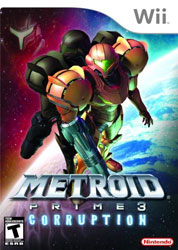It’s been a while since I played enough games to populate a top ten, so let’s follow last year and stick with the top three.
2017 was arguably the best year for games in a while, with a number of early contenders that would likely have made the list, had I played them. Zelda: Breath of the Wild and Mario Odyssey have ensured me a good time whenever I buy a Switch, getting me more excited about Nintendo games than I’ve been since the N64. Surprise critical successes like Nioh and Nier Automata intrigued. Resident Evil VII proved the series’ versatility with another complete overhaul that went over well. Games like Horizon: Zero Dawn and Assassin’s Creed Origins confounded my expectations by doing the over-designed open-world thing well. Wolfenstein II: The New Colossus is also likely to grab me just as firmly as its predecessor.
The above would almost be enough to populate an impressive top ten on their own, but alas, I didn’t play them. Oh well.
There are, though, a couple of honourable mentions for games that I did play but didn’t make the top three. First is the 3DS Dragon Quest VIII remake, which did a good job of transferring a rather immense PS2 game to the handheld with surprisingly few compromises, and saw me through a couple of long flights. Then there’s Monument Valley 2, an excellent sequel to one of my favourite phone-based Escher-like mind-benders. Both are firm recommendations for anyone with time to kill and a handheld gaming system on their person.
3) Sonic Mania
A remarkable revival for a series that I don’t think has been worth writing about since the Dreamcast, and arguably not truly great since Sonic 3. Sonic Mania reminds me of something like Shovel Knight, in that it echoes a familiar classic gaming staple without being completely beholden to it – it’s how you remember the Mega Drive games looking, even if it’s technically far beyond what that hardware was capable of. I had a wonderful time playing it, feeling transported back to those early 90s stolen moments on my brother’s Mega Drive.
It’s easy to make fun of Sonic’s true believers, but maybe, after seeing how completely Christian Whitehead blew away expectations, the fans were right all along.
And maybe, if Sega had done something like this on the Saturn, things would be different now…
2) Metroid: Samus Returns
I’m slightly baffled by the fact that, after such a long, notable absence for Metroid in the N64 era – there were eight years between Super Metroid and Metroid Prime – it’s now been even longer since the last proper one. How many best game ever contenders does Samus have to star in to guarantee herself a regular appearance outside Smash Bros?
An enhanced remake of the second game, coming a mere 13 years after the enhanced remake of the first game (the pattern continues!) will have to do. MercurySteam – a strange choice of developer for this one, it must be said – put out a beautiful game, with understated stereoscopic effects adding much-needed visual flair to the most neglected game in the series, left to languish for too long in monochrome. While I’ll admit that the melee counterattack system hurts the pacing, discouraging fast traversal and otherwise turning many enemies into annoying bullet sponges, that Metroid magic was there, reminding me why Super Metroid remains my favourite game ever made.
I’d dearly love an entirely new instalment in this style, but if that’s not on the cards, the obvious next step is a similar remake of Super Metroid, which would make me fucking ecstatic. See you in 2030, then!
1) Persona 5
It was a safe bet to make the list after the last two games clicked so solidly with me, and here it is. I loved this game. The slick presentation and the music deserve mention, of course. The juxtaposition of carefree leisure time with really quite dark undercurrents was brave and amused me, too. But my most heartfelt praise goes to Atlus for demoting the random dungeon-crawling to a side quest in favour of properly designed, non-random dungeons, fixing my single biggest criticism of Personas 3 and 4.
Part of me misses the small town Japan feeling of Persona 4, which itself evoked the small town Japan feeling of Shenmue, but at the same time, this game’s setting in the middle of Tokyo has earned it a special place in my heart. My time with it bookended last year’s trip to Japan, meaning I visited many of the places I’d been spending time at in the game, lending a special weight of nostalgia to the memories of Persona 5. As the J-pop beats of Ouendan defined my holiday in 2005, then, so this will do for one of the best times of my life.

